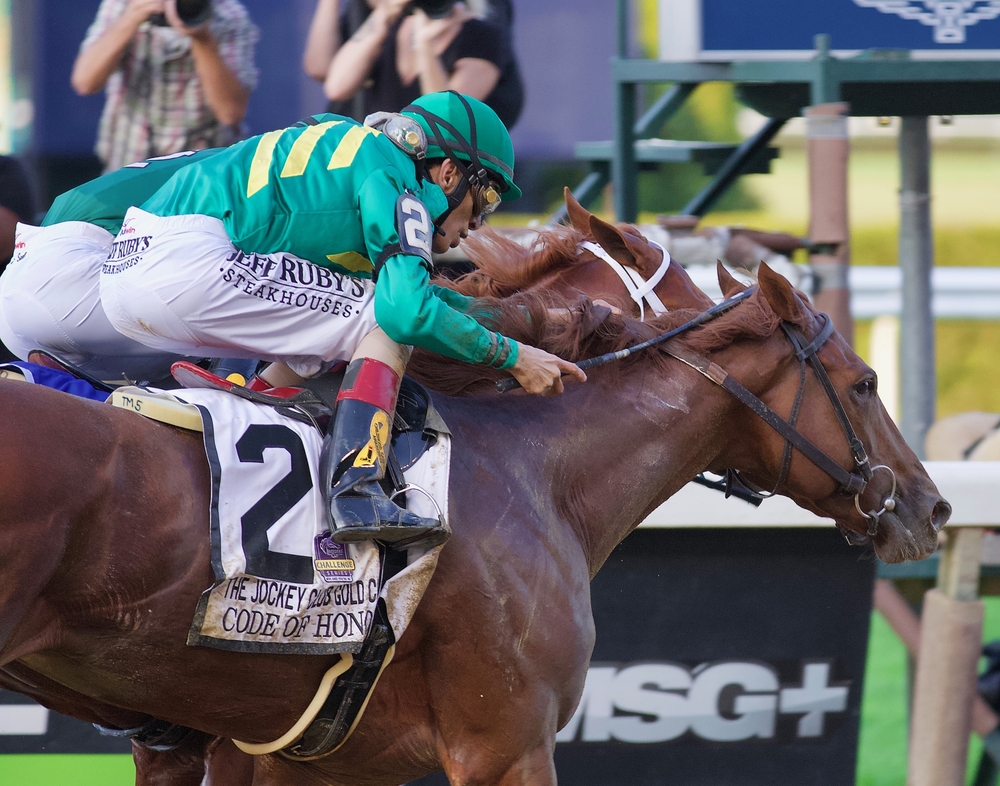Spread betting is an exciting and fast-paced way to bet on sports. It is a form of betting that allows you to place a wager on whether the outcome of a particular sporting event will be above or below a spread set by the bookmaker. Spread betting can be a great way to make a profit if you have a good understanding of the sport and the markets available.
To place a spread bet on sports, you need to have a good understanding of how spread betting works. This involves understanding the basics of spread betting, such as how to calculate your potential profit or loss, the risks involved, and how to manage your bankroll effectively. It is also important to have a good understanding of the different types of bets available, such as buying and selling, and the different markets that are available for each sport.
If you are new to spread betting, it is important to take your time and learn as much as you can before placing any bets. This will help you to make more informed decisions and reduce your risk of losing money. By following some simple tips and strategies, you can increase your chances of making a profit and enjoy the excitement of spread betting on your favourite sports.
Key Takeaways
- Spread betting is a fast-paced way to bet on sports, but it is important to have a good understanding of the basics before placing any bets.
- To place a spread bet on sports, you need to understand how to calculate your potential profit or loss, the risks involved, and how to manage your bankroll effectively.
- By taking your time to learn about spread betting and following some simple tips and strategies, you can increase your chances of making a profit and enjoy the excitement of spread betting on your favourite sports.
Understanding Spread Betting
Spread betting is a form of betting that allows the bettor to speculate on the outcome of an event, such as a sports game. Unlike traditional betting, spread betting does not involve simply betting on a win or loss; instead, the bettor places a bet on the accuracy of the prediction made by the bookmaker.
In spread betting, the bookmaker sets a spread, which is the range of possible outcomes for the event. The bettor then places a bet on whether the actual outcome will be above or below the spread. If the bettor predicts correctly, they win the amount they bet multiplied by the difference between the actual outcome and the spread. If the bettor predicts incorrectly, they lose the amount they bet multiplied by the same difference.
Spread betting can be applied to a wide range of events, including sports games, financial markets, and political elections. In sports spread betting, the spread is usually based on the number of points or goals scored by the teams. For example, in a football game, the spread might be set at 2.5 goals, and the bettor would place a bet on whether the actual number of goals scored by the teams will be above or below that number.
One advantage of spread betting is that it allows the bettor to profit from a correct prediction even if the outcome is not a win. For example, if a bettor places a bet on a team to win by a certain margin, and the team wins by a smaller margin, the bettor may still win the bet if the margin is above the spread.
However, spread betting also carries a higher risk than traditional betting, as the potential losses can be greater than the amount bet. It is important for bettors to understand the risks involved and to only bet what they can afford to lose.
In summary, spread betting is a form of betting that allows the bettor to speculate on the accuracy of a prediction made by the bookmaker. It can be applied to a wide range of events, including sports games, financial markets, and political elections. While it offers the potential for profit, it also carries a higher risk than traditional betting and requires careful consideration of the potential losses.
The Basics of Placing a Bet
Placing a spread bet on sports can be an exciting way to add a bit of extra thrill to watching your favourite games. However, it is important to understand the basics before diving in. Here are some key things to keep in mind when placing a spread bet:
Understanding the Bet
A spread bet is a type of wager in which a bettor predicts the outcome of a sporting event and places a bet on whether the outcome will be above or below a certain spread. The spread is a point margin that the bookmaker assigns to the underdog team in order to level the playing field and make the bet more even.
Placing the Bet
To place a spread bet, a bettor must first decide on the stake they wish to wager. The stake is the amount of money that the bettor is willing to risk on the outcome of the event. Once the stake is decided, the bettor can then choose to either buy or sell the spread.
When a bettor buys the spread, they are predicting that the outcome will be above the spread. When they sell the spread, they are predicting that the outcome will be below the spread. If the bettor’s prediction is correct, they will win the bet. If it is incorrect, they will lose the bet.
Managing Stakes
It is important to manage stakes carefully when placing spread bets. Using small stakes can help bettors to try out a greater variation of markets and minimize potential losses. It is also important to consider the potential outcomes and risks before placing a bet.
By understanding the basics of placing a spread bet, bettors can make more informed decisions and increase their chances of success.
Key Sports for Spread Betting
Spread betting is a popular form of sports betting that allows bettors to place bets on the outcome of an event. Here are some of the key sports for spread betting.
Football Spread Betting
Football is one of the most popular sports for spread betting. Bettors can place bets on a range of markets, including total goals, corners, bookings, and more. Football spread betting is particularly popular in the UK, with teams like Liverpool and England attracting a lot of attention from bettors.
Cricket Spread Betting
Cricket is another popular sport for spread betting. Bettors can place bets on a range of markets, including total runs, wickets, and more. Cricket spread betting is popular in countries like England, where the sport is widely played.
Tennis Spread Betting
Tennis is a popular sport for spread betting, with bettors able to place bets on a range of markets, including total games, sets, and more. Tennis spread betting is popular around the world, with tournaments like Wimbledon attracting a lot of attention from bettors.
Golf Spread Betting
Golf is a popular sport for spread betting, with bettors able to place bets on a range of markets, including total strokes, birdies, and more. Golf spread betting is popular around the world, with tournaments like the Masters and the Open Championship attracting a lot of attention from bettors.
American Football Spread Betting
American Football is a popular sport for spread betting, with bettors able to place bets on a range of markets, including total points, yards, and more. American Football spread betting is particularly popular in the US, with teams like the NFL attracting a lot of attention from bettors.
Basketball Spread Betting
Basketball is a popular sport for spread betting, with bettors able to place bets on a range of markets, including total points, rebounds, and more. Basketball spread betting is popular around the world, with leagues like the NBA attracting a lot of attention from bettors.
In summary, spread betting is a popular form of sports betting that allows bettors to place bets on a range of markets. Football, cricket, tennis, golf, American Football, and basketball are all popular sports for spread betting, with each sport offering a range of markets for bettors to choose from.
Understanding Betting Markets
When placing a spread bet on sports, it is important to understand the concept of betting markets. A betting market is a range of outcomes that a bookmaker offers odds on. These outcomes can be anything from the number of goals scored in a football match to the number of runs scored in a cricket match.
Betting markets can vary from bookmaker to bookmaker, and it is important to shop around to find the best odds. Some bookmakers may offer a wider range of markets than others, so it is worth doing some research before placing a bet.
When placing a spread bet, the bookmaker will offer a spread on a particular market. The spread is the range of outcomes that the bookmaker believes is most likely to happen. For example, in a football match, the bookmaker may offer a spread of 2.5 goals. This means that they believe the total number of goals scored in the match will be either over or under 2.5 goals.
To place a spread bet on a particular market, the bettor must decide whether they believe the outcome will be higher or lower than the spread offered by the bookmaker. If the bettor believes the outcome will be higher, they would buy the spread. If they believe the outcome will be lower, they would sell the spread.
It is important to note that spread betting can be high risk, as the potential losses can be greater than the initial stake. Therefore, it is important to only bet what you can afford to lose and to have a clear understanding of the risks involved.
Profit and Loss in Spread Betting
Spread betting offers an alternative to traditional fixed odds betting, where the amount you can win or lose is fixed. Instead, in spread betting, your profit or loss is determined by how much you bet and by how much you beat or lost to the spread.
Profit
If you place a spread bet and the outcome is in your favour, you will make a profit. The amount of profit you make is determined by how much you bet and how much you beat the spread. For example, if you bet £10 per point on a spread of 100-110 and the final result is 120, you would make a profit of £100 (i.e. 10 x (120-110)).
Loss
On the other hand, if you place a spread bet and the outcome is not in your favour, you will make a loss. The amount of loss you make is determined by how much you bet and how much you lost to the spread. For example, if you bet £10 per point on a spread of 100-110 and the final result is 95, you would make a loss of £150 (i.e. 10 x (110-95)).
Profits and Losses
It is important to note that in spread betting, your profits and losses can be much greater than your initial stake. This is because you are betting on the outcome being a certain number of points above or below the spread, rather than just on a win or lose outcome.
Cashback
Some spread betting companies offer cashback deals, where you can receive a percentage of your losses back as cash. This can be a useful way to limit your losses and manage your risk when spread betting.
Overall, it is important to understand the potential profits and losses involved in spread betting before placing a bet. By carefully managing your risk and using cashback deals, you can minimise your losses and maximise your profits.
Buying and Selling in Spread Betting
In spread betting, a punter can either buy or sell a spread. Buying a spread is when a punter wagers that the outcome will be higher than the spread. On the other hand, selling a spread is when a punter wagers that the outcome will be lower than the spread.
When buying a spread, the punter will pay the buy price, which is the higher end of the spread. For example, if the spread for a football match is 2-3, the punter will pay the buy price of 3 if they believe the total goals scored will be more than 3.
When selling a spread, the punter will receive the sell price, which is the lower end of the spread. For example, if the spread for a cricket match is 49-52, the punter will receive the sell price of 49 if they believe there will be less than 49 wide balls bowled.
It’s important to note that the buy and sell prices will always be slightly different to ensure that the spread betting company makes a profit. The difference between the buy and sell price is known as the spread.
Punters can choose to buy or sell a spread based on their analysis of the market. If they believe that the outcome will be higher than the spread, they will buy the spread. If they believe that the outcome will be lower than the spread, they will sell the spread.
In summary, buying and selling in spread betting is a way for punters to place wagers on the outcome of a market. Punters can choose to buy or sell a spread based on their analysis of the market. When buying a spread, they will pay the buy price, and when selling a spread, they will receive the sell price.
Risks Involved in Spread Betting
Spread betting on sports involves a high level of risk, and it is important to understand the potential losses that can occur. Spread betting is a volatile form of betting, and the market can move quickly, resulting in significant losses. In a low volatility market, the risks are lower, but there is still the potential for losses.
To minimize the risks involved in spread betting, it is important to use small stakes. The amount of risk involved is entirely up to the bettor, and they can take steps to avoid taking on more risk than they are comfortable with.
One way to minimize risk is to use stop-loss orders. A stop-loss order is an order to close a position once it reaches a certain level. This can help prevent further losses if the market moves against the bettor.
Another way to manage risk is to set a credit limit. A credit limit is the maximum amount that a bettor can lose on a single bet. This can help prevent the bettor from losing more than they can afford.
It is important to remember that spread betting involves a high level of risk, and bettors should only bet with money that they can afford to lose. It is also important to have a clear understanding of the market and the risks involved before placing a spread bet on sports.
Fixed Odds Betting Vs Spread Betting
When it comes to sports betting, there are two main types of bets: fixed odds betting and spread betting. Fixed odds betting is the more traditional form of betting where the bookmaker sets the odds for each outcome and the bettor places a wager on a specific outcome. Spread betting, on the other hand, is a more complex form of betting where the bettor wagers on the outcome of an event, but the payout is determined by the accuracy of the wager.
In fixed odds betting, the odds are set by the bookmaker and the bettor knows exactly how much they stand to win or lose before they place their bet. This makes it easier for the bettor to calculate their potential winnings and make informed decisions. In contrast, with spread betting, the payout is determined by the accuracy of the bettor’s prediction. The more accurate the prediction, the higher the payout, but the potential losses can also be greater.
Fixed odds betting is generally considered to be the safer option for bettors who are new to sports betting or who prefer a more straightforward approach. Spread betting, however, can offer greater potential payouts for bettors who are willing to take on more risk.
Another key difference between fixed odds betting and spread betting is that with fixed odds betting, the odds are fixed and do not change. In spread betting, the odds can change throughout the event, making it more difficult to predict the outcome and potentially increasing the risk for the bettor.
Overall, both fixed odds betting and spread betting have their advantages and disadvantages. Bettors should consider their own level of experience, risk tolerance, and betting goals when deciding which type of bet to place.
In-Play Betting and Spread Betting
In-play betting is a popular form of sports betting that allows bettors to place wagers on live events as they unfold. In-play betting is also known as live betting or in-running betting. It is an exciting way to bet on sports, as it allows bettors to react to the action in real-time and adjust their bets accordingly.
Spread betting is a type of betting that involves placing a bet on the outcome of an event, with the payout based on the accuracy of the bet. In spread betting, the bettor does not bet on a simple win or loss, but rather on the difference between the predicted outcome and the actual outcome. Spread betting is a popular form of betting in the UK, and is commonly used in sports betting.
In-play betting and spread betting can be used together to create a unique and exciting betting experience. In-play betting allows bettors to react to the action in real-time, while spread betting allows bettors to place bets on the outcome of the event.
One of the advantages of in-play betting is that it allows bettors to watch the game and make informed decisions based on what they see. This can be especially useful in sports like football, where the momentum of the game can shift quickly. In-play betting also allows bettors to take advantage of live streaming, which is available on many online betting platforms.
Spread betting is also a popular form of betting in-play. Bettors can place spread bets on the outcome of the event, with the payout based on the accuracy of the bet. Spread betting allows bettors to take advantage of the momentum of the game, and to adjust their bets accordingly.
Overall, in-play betting and spread betting can be used together to create a unique and exciting betting experience. Bettors can take advantage of live streaming, adjust their bets in real-time, and use spread betting to take advantage of the momentum of the game.
Spread Betting Tips and Strategies
When it comes to spread betting on sports, there are some tips and strategies that can help increase the chances of success. Here are some of the most important ones to keep in mind:
Start with Small Stakes
One of the most important tips for beginners is to start with small stakes. This allows you to get a feel for how spread betting works without risking too much money. As you become more confident and skilled, you can gradually increase your stakes.
Do Your Research
Knowledge is key when it comes to spread betting on sports. Before placing any bets, it’s important to do your research and gather as much information as possible. This includes looking at team and player statistics, recent form, injuries, and any other relevant factors.
Use Stop Losses
Stop losses are an important risk management tool that can help limit potential losses. By setting a stop loss, you can automatically close out a bet if it reaches a certain level, helping to prevent further losses.
Keep Emotions in Check
Sports betting can be an emotional experience, especially when real money is involved. However, it’s important to keep emotions in check and make decisions based on logic and strategy rather than gut feelings or biases.
Practice Good Bankroll Management
Finally, good bankroll management is essential for long-term success in sports spread betting. This means setting aside a dedicated amount of money for betting, and only risking a small percentage of that on each individual bet. By doing so, you can avoid losing your entire bankroll on a single bad bet.
Overall, sports spread betting requires a combination of knowledge, accuracy, and skill. By following these tips and strategies, you can increase your chances of success and minimise potential losses.
Understanding Bookmakers and Sportsbooks
To place a successful spread bet, it’s crucial to understand how bookmakers and sportsbooks work. A bookmaker is a person or company that accepts bets and pays out winnings. A sportsbook is a place where people can place bets on sports events.
When placing a spread bet, the bookmaker or sportsbook will set a spread, which is the predicted point difference between two teams or players. The bettor must then wager on whether the actual point difference will be greater or less than the spread.
Bookmakers and sportsbooks make money by setting competitive odds. This means that the odds are set to attract an equal amount of money on both sides of the bet. The bookmaker or sportsbook takes a commission, known as the “vig” or “juice,” which is a percentage of the total amount wagered.
It’s important to note that the favourite and the underdog are not always the same as the team or player expected to win or lose. The favourite is the team or player expected to win by the bookmaker or sportsbook, while the underdog is the team or player expected to lose. The draw is also an option in some sports, such as soccer.
When placing a spread bet, it’s essential to shop around for the best odds. Different bookmakers and sportsbooks will offer different spreads and odds, so it’s important to compare and find the best value. It’s also crucial to understand the terms and conditions of the bet, including any potential fees or restrictions.
Overall, understanding bookmakers and sportsbooks is essential to placing successful spread bets. By researching and comparing different options, bettors can find the best value and increase their chances of winning.
Promotions and Offers in Spread Betting
Spread betting companies are known for their generous promotions and offers to attract new customers. Spreadex, for example, offers a welcome offer of bet £10 and get £40 in free bets. This offer is available to new customers who register for a Spreadex account and place a £10 fixed odds bet at minimum odds of 1/2. Once the qualifying bet is settled, the customer will receive 2 x £10 free fixed odds bets, 4 x £5 free spread bets, and a £1 Race Index spread bet.
Spreadex also has regular promotions and competitions for both new and existing clients. These promotions include fixed odds and spread betting offers, as well as free bets and cashback. New customers can take advantage of Spreadex’s fixed odds offer of bet £25 and get up to £50 in bonuses. This offer is available to new customers who register for a Spreadex account and place a £25 fixed odds bet at minimum odds of 1/2. Once the qualifying bet is settled, the customer will receive a £25 fixed odds free bet and a £25 spread bet.
In addition to Spreadex, other spread betting companies also offer promotions and welcome offers to new customers. For example, Sporting Index offers a welcome offer of £100 to new customers who open an account and place five qualifying bets. Each qualifying bet must be at least £20 and must be settled within 14 days of opening the account. Once the five qualifying bets are settled, the customer will receive a £100 free bet.
Bet-builder promotions are also becoming increasingly popular in spread betting. These promotions allow customers to create their own custom bets by combining different markets and outcomes. For example, a customer could combine the number of goals scored in a football match with the number of corners and the first goalscorer to create a unique bet. Spread betting companies such as Spreadex and Sporting Index offer bet-builder promotions to new and existing customers.
Overall, spread betting companies offer a range of promotions and offers to attract new customers and retain existing ones. These promotions include welcome offers, free bets, cashback, and bet-builder promotions. Customers should always read the terms and conditions of these promotions carefully to ensure they understand the requirements and restrictions.
Spread Betting Training and Resources
For those who are new to spread betting, it is important to educate themselves on the basics of the practice. This can be done through various training centres and resources available online.
One such resource is Sporting Index, which offers a training centre for those who want to learn more about spread betting. The centre provides a range of resources, including videos and articles, to help users understand the basics of spread betting and how to use it to their advantage.
City Index also offers a range of resources and training materials to help users learn more about spread betting. Their website provides a range of articles and videos on the topic, as well as a demo account for users to practice with.
When it comes to spread betting, it is important to have a good understanding of the markets and how they work. This can be achieved through research and analysis of the markets, as well as following news and trends in the relevant industries.
Overall, there are many resources available for those who want to learn more about spread betting. By taking advantage of these resources, users can become more confident and knowledgeable in their approach to spread betting on sports.
Frequently Asked Questions
How do I calculate my potential earnings when placing a spread bet on sports?
To calculate your potential earnings when placing a spread bet on sports, you need to multiply your stake by the difference between the spread and the outcome of the event. For example, if you place a £10 stake on a spread bet with a spread of 5 and the outcome is 10, your earnings would be £50 (5 x £10). However, if the outcome is 2, you would lose £30 (3 x £10).
What are some common mistakes to avoid when placing spread bets on sports?
One common mistake to avoid when placing spread bets on sports is not doing enough research. It’s important to understand the sport, the teams, and the players before placing a bet. Another mistake is not managing your risk properly. It’s important to set a budget and stick to it, and to avoid chasing losses by placing bigger bets.
Can I place a spread bet on any sport or are there restrictions?
Spread betting is available on a wide range of sports, including football, rugby, cricket, tennis, and more. However, there may be restrictions on certain events or leagues, so it’s important to check with your spread betting provider.
What factors should I consider when placing a spread bet on a football match?
When placing a spread bet on a football match, it’s important to consider factors such as the teams’ recent form, their head-to-head record, any injuries or suspensions, and the weather conditions. It’s also important to consider the spread and the potential outcomes of the match.
How do I manage my risk when placing a spread bet on sports?
To manage your risk when placing a spread bet on sports, it’s important to set a budget and stick to it. You should also avoid chasing losses by placing bigger bets, and consider using stop-loss orders to limit your losses. It’s also important to do your research and understand the sport, the teams, and the players before placing a bet.
What are the key differences between spread betting and traditional sports betting?
The key difference between spread betting and traditional sports betting is that with spread betting, your potential earnings and losses are not fixed. Instead, they are determined by the accuracy of your bet. With traditional sports betting, you place a fixed-odds bet and your potential earnings and losses are determined by the odds at the time of placing the bet.





